Five Chiefs
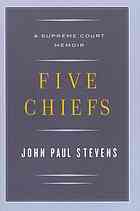 John Paul Stevens. Five Chiefs: A Supreme Court Memoir. New York: Little, Brown, 2011. KF8745.S78 A3 2011
John Paul Stevens. Five Chiefs: A Supreme Court Memoir. New York: Little, Brown, 2011. KF8745.S78 A3 2011
From the publisher: When he resigned last June, Justice Stevens was the third longest serving Justice in American history (1975-2010)–only Justice William O. Douglas, whom Stevens succeeded, and Stephen Field have served on the Court for a longer time.
In Five Chiefs, Justice Stevens captures the inner workings of the Supreme Court via his personal experiences with the five Chief Justices–Fred Vinson, Earl Warren, Warren Burger, William Rehnquist, and John Roberts–that he interacted with. He reminisces of being a law clerk during Vinson’s tenure; a practicing lawyer for Warren; a circuit judge and junior justice for Burger; a contemporary colleague of Rehnquist; and a colleague of current Chief Justice John Roberts. Along the way, he will discuss his views of some the most significant cases that have been decided by the Court from Vinson, who became Chief Justice in 1946 when Truman was President, to Roberts, who became Chief Justice in 2005.
Packed with interesting anecdotes and stories about the Court, Five Chiefs is an unprecedented and historically significant look at the highest court in the United States.
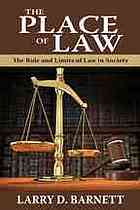
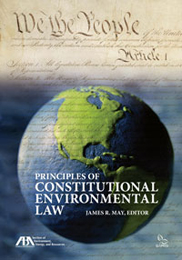
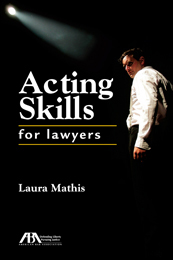
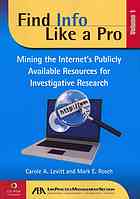 Carole A Levitt & Mark E Rosch. Find Info Like a Pro. Chicago, ABA Law Practice Management Section, 2010.
Carole A Levitt & Mark E Rosch. Find Info Like a Pro. Chicago, ABA Law Practice Management Section, 2010.  Elizabeth Price Foley. The Law of Life and Death. Cambridge, Mass., Harvard University Press, 2011.
Elizabeth Price Foley. The Law of Life and Death. Cambridge, Mass., Harvard University Press, 2011.  Ronald Dworkin. Justice for Hedgehogs. Cambridge, Mass. Belknap Press of Harvard University Press, 2011.
Ronald Dworkin. Justice for Hedgehogs. Cambridge, Mass. Belknap Press of Harvard University Press, 2011.  Stuart Banner. American Property: A History of How, Why, and What We Own. Cambridge, Mass., Harvard University Press, 2011.
Stuart Banner. American Property: A History of How, Why, and What We Own. Cambridge, Mass., Harvard University Press, 2011. 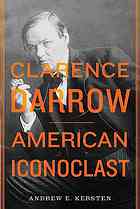 Andrew Edmund Kersten. Clarence Darrow: American Iconoclast. New York, Hill and Wang, 2011.
Andrew Edmund Kersten. Clarence Darrow: American Iconoclast. New York, Hill and Wang, 2011.  David K Shipler. The Rights of the People: How Our Search for Safety Invades Our Liberties. New York, Alfred A. Knopf, 2011.
David K Shipler. The Rights of the People: How Our Search for Safety Invades Our Liberties. New York, Alfred A. Knopf, 2011. 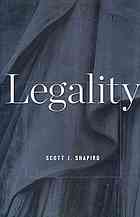 Scott Shapiro. Legality. Harvard University Press, 2011.
Scott Shapiro. Legality. Harvard University Press, 2011. 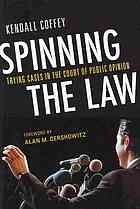 Kendall Coffey. Spinning the Law: Trying Cases in the Court of Public Opinion. Prometheus Books, 2010.
Kendall Coffey. Spinning the Law: Trying Cases in the Court of Public Opinion. Prometheus Books, 2010.  Leah M. Christensen. Learning Outside the Box: A Handbook for Law Students Who Learn Differently. Carolina Academic Press, 2010.
Leah M. Christensen. Learning Outside the Box: A Handbook for Law Students Who Learn Differently. Carolina Academic Press, 2010. 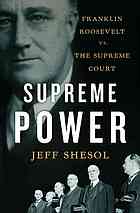 Jeff Shesol. Supreme Power: Franklin Roosevelt vs. the Supreme Court. W.W. Norton, c2010.
Jeff Shesol. Supreme Power: Franklin Roosevelt vs. the Supreme Court. W.W. Norton, c2010. 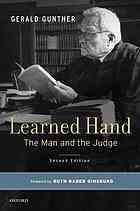 Gerald Gunther. Learned Hand: The Man and the Judge. Oxford University Press, 2011.
Gerald Gunther. Learned Hand: The Man and the Judge. Oxford University Press, 2011.